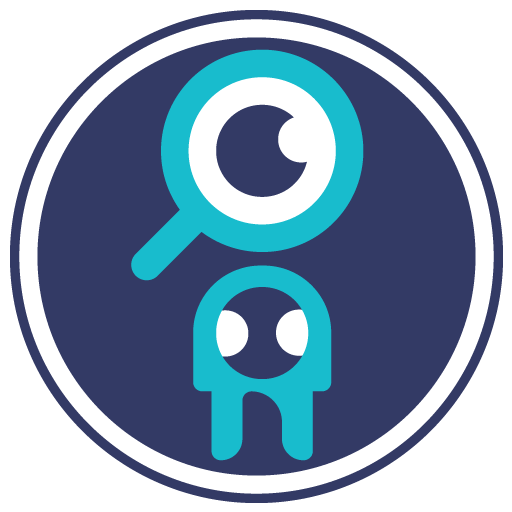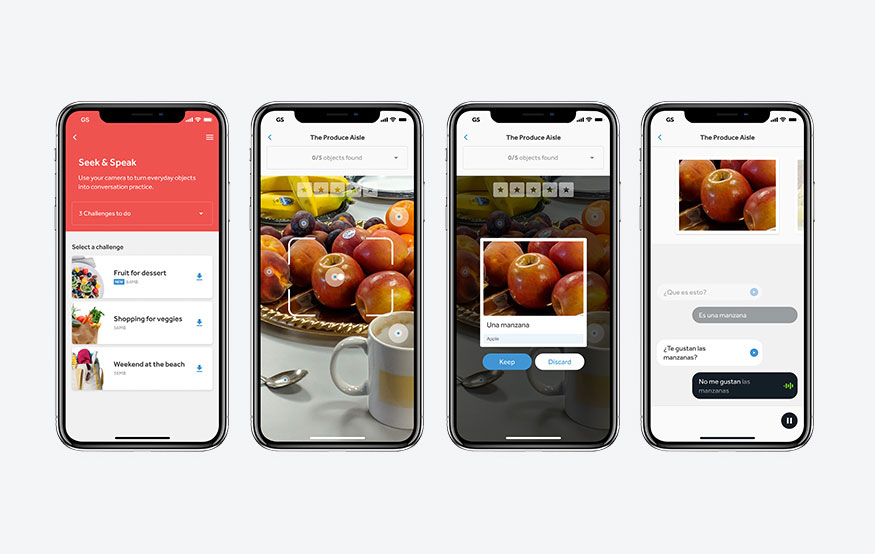231.6K reviews
418.36K followers
- 405.51K users like this
- Claimed
Rosetta Stone offers immersive language learning with speech recognition, real-life context training, and diverse levels. It enhances fluency and boosts confidence in communication skills.
LICENSE MODEL
Paid
PRODUCT MODEL
Proprietary
PLATFORMS
- Android
- iOS
- iPad
- iPhone
- Android Tablet
- Software as a Service (SaaS)
- Online
- Mac
- Apple Watch
Rosetta Stone CATEGORIES ON SEOTESTINGTOOLS.COM
What is Rosetta Stone?
Table of Contents
Rosetta Stone: Unlocking Language Learning in the Digital Age
In today’s interconnected global marketplace, the ability to communicate across languages has become more crucial than ever. As businesses expand internationally and remote work becomes the norm, professionals are increasingly seeking efficient ways to acquire new language skills. Enter Rosetta Stone, a pioneering language learning platform that has been at the forefront of educational technology for decades. In this comprehensive review, we’ll dive deep into what makes Rosetta Stone tick, exploring its evolution, features, and relevance in the modern corporate landscape.
View More ❱The Evolution of Rosetta Stone
From CD-ROMs to Cloud-Based Solutions
Remember the…Rosetta Stone: Unlocking Language Learning in the Digital Age
In today’s interconnected global marketplace, the ability to communicate across languages has become more crucial than ever. As businesses expand internationally and remote work becomes the norm, professionals are increasingly seeking efficient ways to acquire new language skills. Enter Rosetta Stone, a pioneering language learning platform that has been at the forefront of educational technology for decades. In this comprehensive review, we’ll dive deep into what makes Rosetta Stone tick, exploring its evolution, features, and relevance in the modern corporate landscape.
The Evolution of Rosetta Stone
From CD-ROMs to Cloud-Based Solutions
Remember the days when language learning meant lugging around a hefty box of CD-ROMs? Rosetta Stone certainly does – because that’s where their journey began. Founded in 1992, the company revolutionized self-paced language instruction with its innovative software. But as we all know, technology waits for no one, and Rosetta Stone has had to evolve rapidly to stay relevant. Gone are the physical discs, replaced by sleek cloud-based solutions that allow learners to access their courses from anywhere, at any time. This shift wasn’t just about convenience; it opened up a whole new world of possibilities for continuous updates, real-time progress tracking, and seamless multi-device experiences.Adapting to Mobile and AI Technologies
As smartphones became ubiquitous, Rosetta Stone recognized the potential for truly on-the-go learning. Their mobile app isn’t just a scaled-down version of the desktop experience – it’s a fully-fledged learning tool optimized for bite-sized sessions and touch interfaces. But the real game-changer has been the integration of artificial intelligence. AI has transformed Rosetta Stone from a static learning program into a dynamic, adaptive system. Machine learning algorithms now analyze user performance to tailor lessons, focusing on areas where individuals need the most practice. It’s like having a personal language tutor in your pocket, one that never gets tired and is available 24/7.Core Features and Methodology
Immersive Learning Approach
At the heart of Rosetta Stone’s methodology is the concept of immersive learning. Unlike traditional language courses that rely heavily on translation and rote memorization, Rosetta Stone throws you into the deep end – but with a well-designed set of floaties. From the very first lesson, you’re exposed to the target language without any crutches from your native tongue. Images, audio, and interactive exercises work together to create connections between words and concepts, mimicking the way we naturally acquire language as children. It’s a bold approach that can be challenging at first, but many users report breakthroughs in understanding and retention.Speech Recognition Technology
One of Rosetta Stone’s standout features is its advanced speech recognition technology. It’s not enough to just read a new language – you need to speak it to truly master it. This is where many self-study programs fall short, but Rosetta Stone rises to the challenge.TruAccent™ Pronunciation Guide
The platform’s proprietary TruAccent™ system listens to your pronunciation and provides real-time feedback. It’s like having a patient native speaker by your side, gently correcting your accent and intonation. The technology is surprisingly accurate, picking up on subtle nuances that even some human tutors might miss. But let’s be real – it’s not perfect. While TruAccent™ is a powerful tool, it can sometimes struggle with certain accents or speech patterns. However, regular updates continue to improve its accuracy, and for most learners, it provides invaluable practice in pronunciation and speaking confidence.Language Offerings and Course Structure
Available Languages and Proficiency Levels
Rosetta Stone boasts an impressive catalog of languages, covering everything from widely spoken tongues like Spanish and Mandarin to more niche options like Irish and Swahili. Each language course is structured to take learners from complete beginner to intermediate or advanced levels, depending on the language. The diversity of offerings makes Rosetta Stone an attractive option for multinational corporations looking to support employees in various global markets. Whether you’re preparing for a business trip to Tokyo or setting up a new office in São Paulo, chances are Rosetta Stone has you covered.Customizable Learning Paths
One size doesn’t fit all when it comes to language learning, and Rosetta Stone recognizes this. The platform offers customizable learning paths that allow users to focus on specific areas of interest or professional needs. For example, a sales executive might prioritize business vocabulary and conversational skills, while a software developer might spend more time on technical terminology. This flexibility is particularly valuable in a corporate setting, where employees may have diverse language learning goals. The ability to tailor courses to individual needs ensures that time spent learning is directly applicable to job responsibilities.Enterprise Solutions for Businesses
Rosetta Stone Catalyst for Corporate Training
Recognizing the unique needs of corporate clients, Rosetta Stone has developed Catalyst, a comprehensive language learning solution designed specifically for businesses. Catalyst goes beyond individual learning, offering tools for managers to track team progress, set goals, and measure ROI on language training investments. The platform includes features like live tutoring sessions with native speakers, industry-specific content libraries, and progress assessments aligned with international language proficiency standards. It’s a robust system that can be scaled from small teams to entire multinational organizations.Integration with Learning Management Systems
For companies that already have established learning ecosystems, Rosetta Stone offers seamless integration with popular Learning Management Systems (LMS). This means employees can access language courses alongside other professional development resources, creating a unified learning experience. The LMS integration also simplifies administration and reporting, allowing HR and L&D teams to manage language training alongside other corporate education initiatives. It’s a boon for organizations looking to streamline their training processes and maximize the impact of their learning investments.Comparing Rosetta Stone to Competitors
Duolingo vs. Rosetta Stone
In the world of language learning apps, Duolingo has emerged as a formidable competitor to Rosetta Stone. With its gamified approach and free basic tier, Duolingo has captured a significant market share, particularly among casual learners. However, when it comes to depth of content and professional applications, Rosetta Stone still holds an edge. While Duolingo excels at making language learning fun and accessible, Rosetta Stone’s structured curriculum and business-focused features make it a more robust choice for serious learners and corporate environments.Babbel vs. Rosetta Stone
Babbel is another strong contender in the online language learning space, often praised for its focus on practical conversation skills and cultural context. In many ways, Babbel’s approach is more traditional than Rosetta Stone’s immersion method, which can be appealing to learners who prefer more explicit grammar instruction. Where Rosetta Stone pulls ahead is in its enterprise offerings and advanced speech recognition technology. For businesses looking for a comprehensive language training solution, Rosetta Stone’s Catalyst platform offers a level of customization and scalability that Babbel currently doesn’t match.The Future of Rosetta Stone in EdTech
Incorporating Virtual Reality and Gamification
As we look to the future, it’s clear that Rosetta Stone isn’t resting on its laurels. The company is actively exploring cutting-edge technologies to enhance the learning experience. Virtual reality (VR) is one area with enormous potential for language education. Imagine practicing your Spanish by virtually wandering through the streets of Barcelona, interacting with AI-powered characters in realistic scenarios. This level of immersion could revolutionize how we acquire language skills, making the process more engaging and effective than ever before. Gamification is another trend that Rosetta Stone is embracing. By incorporating game-like elements such as points, leaderboards, and achievements, the platform aims to boost motivation and make learning more enjoyable. It’s a delicate balance – maintaining educational rigor while tapping into the psychological rewards that make games so addictive.Potential for Personalized AI Tutors
Looking further ahead, the holy grail of language learning technology might be truly personalized AI tutors. Rosetta Stone is well-positioned to lead in this area, given their existing investments in AI and speech recognition. Picture an AI companion that not only corrects your pronunciation but engages you in natural conversations, adapts its personality to your learning style, and even helps you practice specific scenarios relevant to your work or travel plans. While we’re not quite there yet, the rapid advancements in natural language processing suggest that such a future might not be far off. As we wrap up our deep dive into Rosetta Stone, it’s clear that the platform has come a long way from its CD-ROM origins. By continuously innovating and adapting to new technologies, Rosetta Stone has maintained its position as a leader in language learning solutions, particularly in the corporate sphere. For businesses looking to equip their workforce with crucial language skills, Rosetta Stone offers a compelling package. The combination of a proven immersive methodology, advanced speech recognition, and robust enterprise features makes it a strong contender in the crowded EdTech market. However, no solution is perfect, and potential adopters should carefully consider their specific needs and learning preferences. While Rosetta Stone’s immersion approach can be highly effective, it may not suit everyone’s learning style. Additionally, the investment required for enterprise solutions might be substantial for smaller organizations. Ultimately, in a world where global communication is more important than ever, tools like Rosetta Stone play a vital role in breaking down language barriers and fostering international collaboration. As the platform continues to evolve, incorporating new technologies and refining its methodologies, it’s likely to remain a key player in shaping the future of language education for both individuals and businesses alike.FAQs
- How long does it take to become fluent using Rosetta Stone? The time to fluency varies greatly depending on the individual, the language being learned, and the amount of practice. While Rosetta Stone provides a structured path to proficiency, true fluency typically requires several months to years of consistent study and real-world practice.
- Can Rosetta Stone replace traditional classroom language learning? While Rosetta Stone is a powerful tool, it works best as a complement to, rather than a replacement for, traditional learning methods. The platform excels at providing consistent practice and immediate feedback, but learners may still benefit from human interaction and cultural immersion.
- Is Rosetta Stone’s enterprise solution cost-effective for small businesses? The cost-effectiveness depends on the specific needs and budget of the business. While the enterprise solution offers robust features, smaller companies might find more value in individual licenses or alternative platforms designed for smaller teams.
- How does Rosetta Stone handle less common languages or dialects? Rosetta Stone offers courses in many languages, including some less commonly taught ones. However, the depth of content and dialect coverage may vary. It’s best to check their current offerings and course details for specific language needs.
- Can Rosetta Stone integrate with custom corporate training materials? Yes, Rosetta Stone’s Catalyst platform allows for some level of customization and integration with existing training materials. The extent of integration possibilities should be discussed with their enterprise sales team for specific requirements.
Rosetta Stone offers immersive language learning with speech recognition, real-life context training, and diverse levels. It enhances fluency and boosts confidence in communication skills.
Product Description
What are the features of Rosetta Stone?
Language Learning Features:
- Interactive Language Lessons
- Speech Recognition Technology
- Vocabulary Building Exercises
- Grammar and Structure Practice
- Cultural Context and Insights
- Mobile App Availability
- Web-Based Platform
- Offline Learning Capability
- Personalized Learning Path
- Achievement Badges
- Performance Statistics
- One-on-One Tutoring Sessions
- Group Tutoring Options
- Flexible Scheduling
User Sentiment
- Rosetta Stone is widely recognized for its immersive language learning approach, offering a wide range of languages and engaging interactive lessons.
- Users appreciate the speech recognition technology that helps improve pronunciation and the flexibility of learning at one’s own pace.
- Reviewers highlight the variety of activities and the inclusion of cultural context, making the learning experience more enriching and enjoyable.
- Some reviewers have mentioned challenges with pricing and desired additional features like grammar tips or more advanced content.
Official Links
Rosetta Stone information
- Developed By: Rosetta Stone Inc.
- Ownership: NYSE:RST
- Phone: +1 (800) 788-0822
- Email Support: [email protected]
- Year Founded: 1992
- HQ Location: Arlington, VA
- Total Revenue (USD mm): $212
- Supported Languages: Arabic, Chinese (Simplified), Dutch, English, French, German, Greek, Hebrew, Irish, Italian, Japanese, Korean, Persian (Farsi), Portuguese, Russian, Spanish, Swedish, Turkish
Rosetta Stone status
Is Rosetta Stone down? NO
Current Rosetta Stone status: Up
NOTE: There are 0 reported issues in the last 24h.
Last check: 1 second ago





